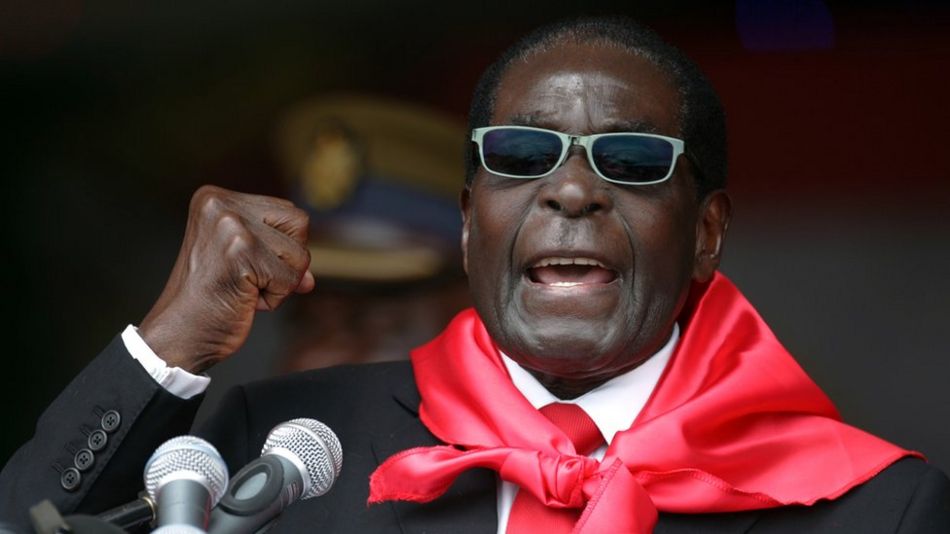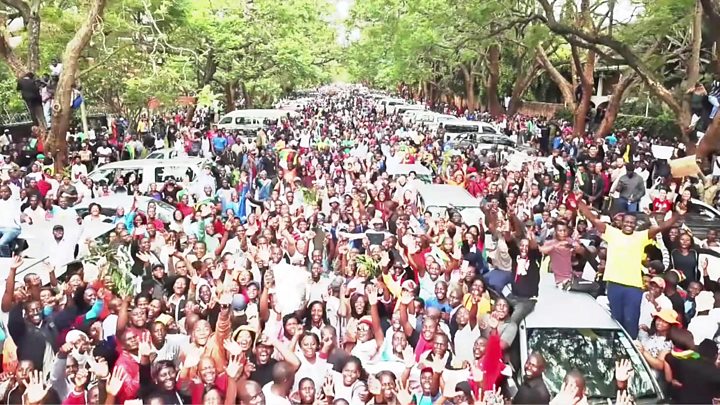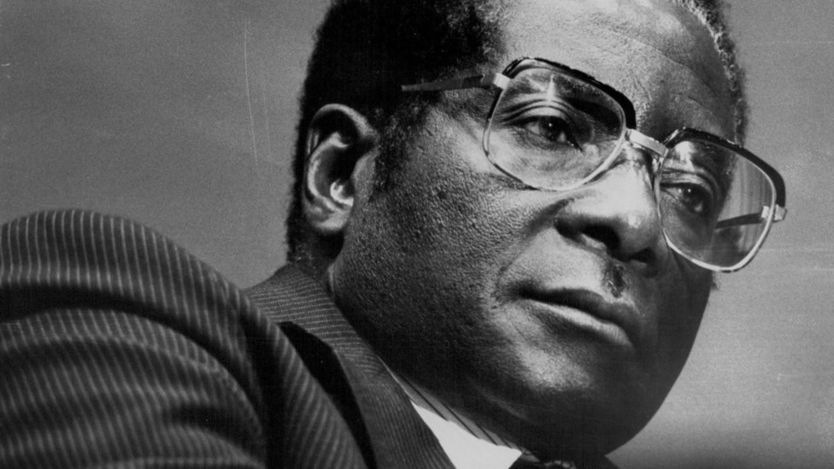Zimbabwe ex-president, dies aged 95

Robert Mugabe, the Zimbabwean independence icon turned authoritarian leader, has died aged 95.
Mr Mugabe had been receiving treatment in a hospital in Singapore since April. He was ousted in a military coup in 2017 after 37 years in power.
The former president was praised for broadening access to health and education for the black majority.
But later years were marked by violent repression of his political opponents and Zimbabwe's economic ruin.
His successor, Emmerson Mnangagwa, expressed his "utmost sadness", calling Mr Mugabe "an icon of liberation".
Mr Mnangagwa had been Mr Mugabe's deputy before replacing him.
Who was Robert Mugabe?
Mr Mugabe was born on 21 February 1924 in what was then Rhodesia - a British colony, run by its white minority.
He was imprisoned for more than a decade without trial after criticising the government of Rhodesia in 1964.In 1973, while still in prison, he was chosen as president of the Zimbabwe African National Union (Zanu), of which he was a founding member.
Once released, he headed to Mozambique, from where he directed guerrilla raids into Rhodesia. But he was also seen as a skilled negotiator.
Political agreements to end the crisis resulted in the new independent Republic of Zimbabwe.

From liberator to tyrant
By Joseph Winter, BBC News
To some, he was an evil dictator who should have ended his days in jail for crimes against humanity.
To others, he was a revolutionary hero, who fought racial oppression and stood up to Western imperialism and neo-colonialism.
On his own terms, he was an undoubted success.
He destroyed the economic power of Zimbabwe's white community, which was based on their hold over the country's most fertile land.
However, his compatriots - except for a small, well-connected elite - paid the price, with the destruction of what had once been one of Africa's most diversified economies.
In the end, this came back to haunt him.
What has the reaction been?
Deputy Information Minister Energy Mutodi, of Mr Mugabe's Zanu-PF party, told the BBC the party was "very much saddened" by his death.
"As a government, we are very much with the family members of the Mugabe family," he said.
"He was a principled man: he could not change easily over his beliefs. He's a man who believed himself, he's a man who believed in what he did and he is a man who was very assertive in whatever he said. This was a good man."
Not everyone agreed, however.
Zimbabwean Senator David Coltart, once labelled "an enemy of the state" by Mr Mugabe, said his legacy had been marred by his adherence to violence as a political tool.

"He was always committed to violence, going all the way back to the 1960s... he was no Martin Luther King," he told the BBC World Service. "He never changed in that regard."
But he acknowledged that there was another side to Robert Mugabe, who had "had a great passion for education... [and] mellowed in his later years".
"There's a lot of affection towards him, because we must never forget that he was the person primarily responsible for ending oppressive white minority rule," the senator said.
The government of neighbouring South Africa tweeted its condolences, labelling Mr Mugabe "a fearless pan-Africanist liberation fighter".
 FAIRFAX / GETTY IMAGES
FAIRFAX / GETTY IMAGES
Veronica Madgen and her husband ran one of the largest farms in Zimbabwe before it was invaded by Mr Mugabe's supporters, forcing the family to come to the UK.
Speaking to the BBC, she recalled: "The tractors [were] being burnt, the motorcycles [were] being burnt, stones [were being] thrown through the window… It was very difficult to actually come to terms with what was happening.
"I was sad for him and his family, because for the first 20 years he governed that country, he was a good leader, until that threat of losing that election got hold of him and he turned."
Mr Mugabe is likely to be remembered for his early achievements, the BBC's Shingai Nyoka reports from the capital, Harare.
In his later years, people called him all sorts of names, but now is probably the time when Zimbabweans will think back to his 37 years in power, she says.
There's a local saying that whoever dies becomes a hero, and we're likely to see that now, our correspondent adds.
Source:bbc.com


Post a Comment